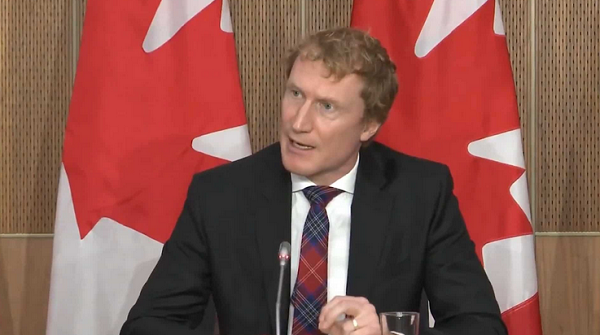Ottawa’s cap on international students’ postgrad work permits is ‘elitism,’ Ontario colleges say
A group representing all Ontario public colleges is urging the federal government to reconsider the decision to end automatic work permits for their international students, citing “elitism” favouring their university counterparts.
In an open letter to Immigration Minister Marc Miller released Tuesday, Colleges Ontario said the new policy that will kick in on Nov. 1 fails to take into account regional economic needs and won’t better align the international student program with Canada’s labour market.
The shift by Immigration, Refugees and Citizenship Canada “does nothing to address this pressing need,” wrote its president and CEO Marketa Evans, whose group represents all 24 government-funded colleges in the province.
“Ending work opportunities will exacerbate labour shortages, stall economic growth and damage the province’s ability to compete globally.”
Last month, Miller imposed a further 10 per cent reduction in the intake of international students next year and made additional changes to restrict eligibility for international graduates’ work permits. The automatic access to post-graduation work permits (PGWP) had made Canada a top destination for international education because it offered a potential pathway for permanent residence.
“To better align the program with immigration goals, including economic objectives and volume management targets, PGWP eligibility parameters have been recalibrated based on human capital and labour market factors,” Miller’s office said in a statement to the Star.
“This means that, in the future, PGWP eligibility will depend on a student’s level of study, language proficiency and/or labour market considerations.”
While international graduates from university degree programs will remain eligible for a work permit of up to three years, those who apply for study permits on or after Nov. 1 to pursue a college program will be required to graduate from a field of study linked to occupations with long-term shortages.
In additional to training workers in health care, skilled trades, transportation, construction and manufacturing, Colleges Ontario said in its letter that its graduates play a pivotal role in addressing regional and local labour market needs, especially in industries such as mining, agri-business, tourism, hospitality and aviation, among others.
Last year in Ontario, it said, more than 1,800 international students also enrolled in personal support work programs; nearly 1,000 studied to become practical nurses; and 4,500 were enrolled in early childhood education programs.
“Without them, these sectors will face further strain, making it harder for Ontarians to find affordable child care and health care close to home,” the letter noted.
The immigration minister’s office said the occupations with long-term shortages already include jobs in health care, trade occupations and others that are prioritized for permanent residence. A list of fields of study eligible for post-graduation work permits from colleges will come out soon, the office said.
“This alignment will help international graduates find meaningful work in Canada and improve their opportunities to transition to permanent residence,” Miller’s office said. “We agree with Colleges Ontario that many of the example sectors (it) cited do have shortages. That’s why we exempted in-need sectors from the recently announced measures.”
In an interview, Evans said it does not make sense to have different levels of access to work permits based on whether an international student goes to a college or university, which she said shows “elitism” in favour of the latter.
“We want to make sure that nothing is inadvertently falling through the cracks because local labour market needs might look quite different than how things look from an office in Ottawa.”
This article was first reported by The Star













